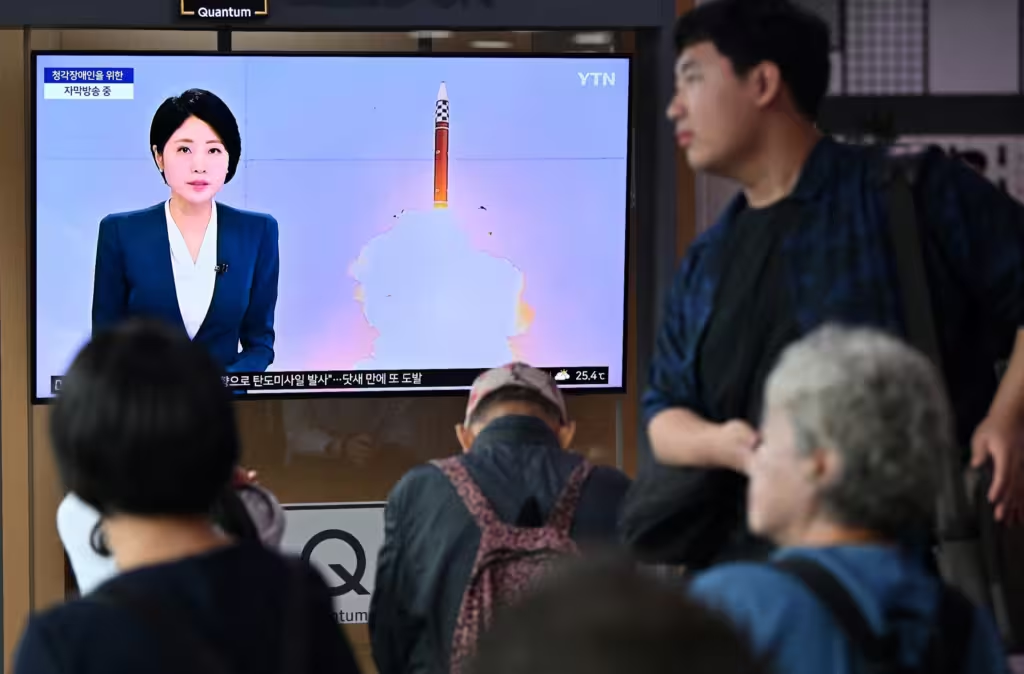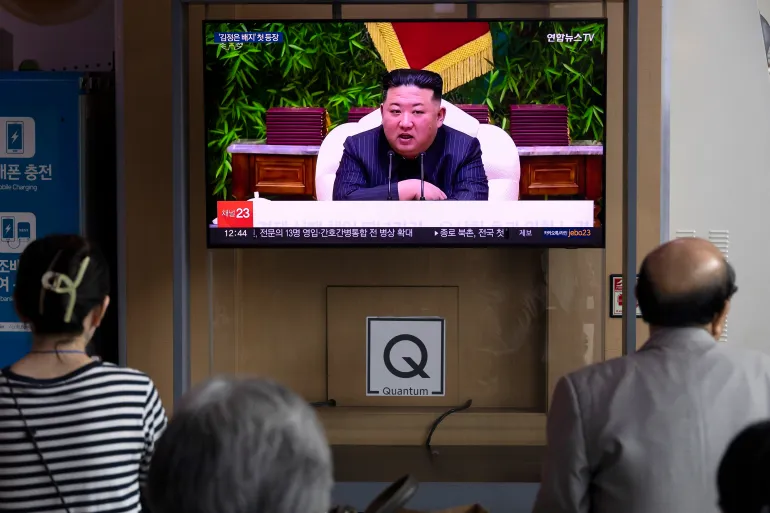Escalating Tensions
In a move that has raised international concerns. North Korea fired two ballistic missiles, with reports suggesting that one may have landed on land. This development marks another instance of North Korea’s ongoing missile tests. Which continue to provoke strong reactions from neighboring countries and the broader international community. In this blog, we’ll explore the key details of the missile launch, the immediate reactions, and the potential implications for regional and global security.
The Missile Launch: Key Details
The details surrounding the latest missile launch by North Korea provide insight into the nature and potential impact of this test.
Launch and Trajectory
According to military sources, North Korea launched two ballistic missiles from a location on its eastern coast. The missiles followed a high-trajectory path, with one missile reportedly landing in the Sea of Japan (East Sea). While the other is believed to have fallen on land within North Korea’s territory. The exact locations and intended targets remain unclear, as North Korea has not officially commented on the test.
Technical Specifications
While the specific type of ballistic missiles used in the test has not been confirmed. Past tests have involved short-range, medium-range, and intercontinental ballistic missiles (ICBMs). These tests often serve as demonstrations of North Korea’s advancing missile technology and its capability to reach various distances.

International Reactions on North Korea
The missile launch has elicited swift reactions from neighboring countries and the international community. Reflecting the heightened tensions and concerns over North Korea’s actions.
South Korea’s Response
South Korea’s military quickly condemned the missile launch, describing it as a provocative act that threatens regional stability. The South Korean government has called for increased vigilance and readiness. Conducting emergency meetings to assess the situation and coordinate with allies, particularly the United States.
Japan’s Reaction
Japan government also expressed strong condemnation, with Prime Minister Fumio Kishida calling the missile launches unacceptable. Japan’s defense ministry has been closely monitoring the situation. Emphasizing the need for heightened security measures and calling for international cooperation to address the threat posed by North Korea’s missile program.
United States and Allies
The United States, along with its allies, has reaffirmed its commitment to the defense of South Korea and Japan. The U.S. State Department issued a statement condemning the missile launches and urging North Korea to engage in dialogue and diplomacy rather than provocative actions. The international community, including the United Nations, has reiterated calls for North Korea to adhere to international norms and resolutions regarding missile tests.
Implications for Regional and Global Security
The latest missile launch by North Korea has significant implications for regional and global security, affecting diplomatic relations and strategic calculations.
Regional Security Dynamics
The missile launch exacerbates tensions in the Korean Peninsula and heightens the security concerns of neighboring countries. It underscores the need for robust defense and deterrence measures, prompting South Korea and Japan to enhance their military readiness and cooperation with the United States. These actions may include joint military exercises, increased surveillance, and potential deployments of missile defense systems.
Diplomatic Efforts
The missile launch complicates diplomatic efforts to address North Korea’s missile and nuclear programs. Despite previous negotiations and agreements aimed at denuclearization, North Korea’s continued missile tests signal its unwillingness to comply fully with international demands. This situation challenges diplomatic initiatives and necessitates a reassessment of strategies to engage North Korea in constructive dialogue.
Global Non-Proliferation
North Korea’s missile tests pose a broader challenge to global non-proliferation efforts. The continued development and testing of ballistic missiles by North Korea set a concerning precedent for other countries with similar ambitions. Strengthening international non-proliferation frameworks and enforcing existing resolutions are crucial to prevent the spread of missile technology and maintain global security.

Navigating a Complex Threat in North Korea
North Korea’s launch of two ballistic missiles, with reports indicating one may have fallen on land, underscores the ongoing security challenges posed by its missile program. The immediate reactions from South Korea, Japan, and the international community reflect the heightened concerns and the need for coordinated responses to address the threat.
As the situation evolves, it is essential to balance deterrence with diplomatic efforts to mitigate the risk of further escalation. The international community must remain vigilant and unified in its approach to North Korea, emphasizing the importance of dialogue, adherence to international norms, and the pursuit of lasting peace and security in the region.
Inspired by Al-Jazeera News and Rear More Articles Here. or Read Previous Articles Here.
